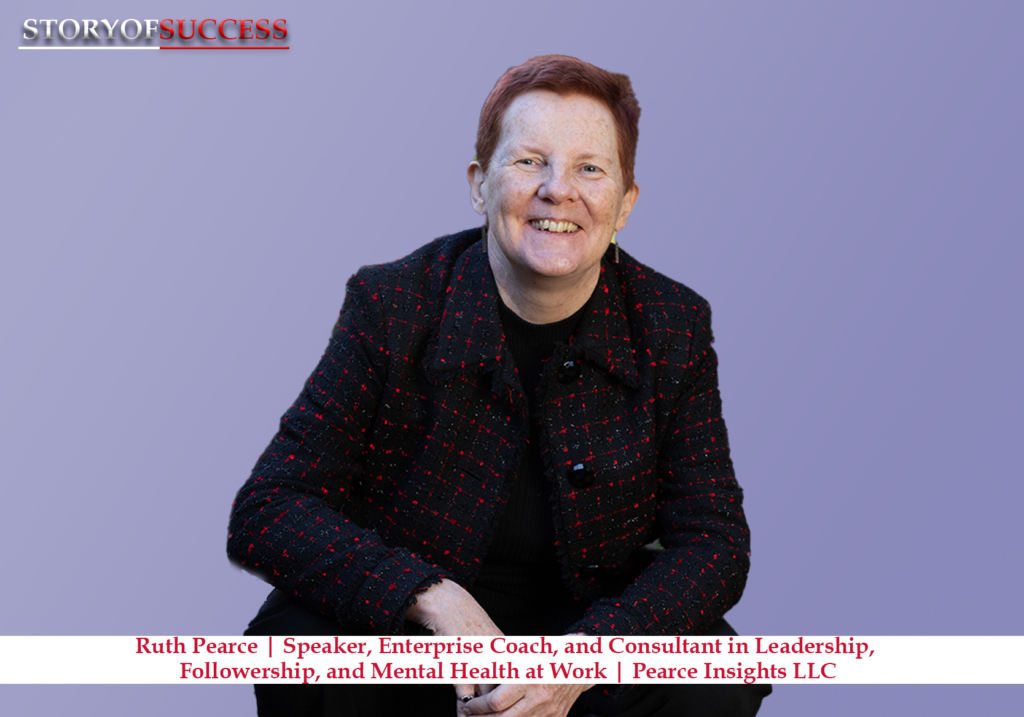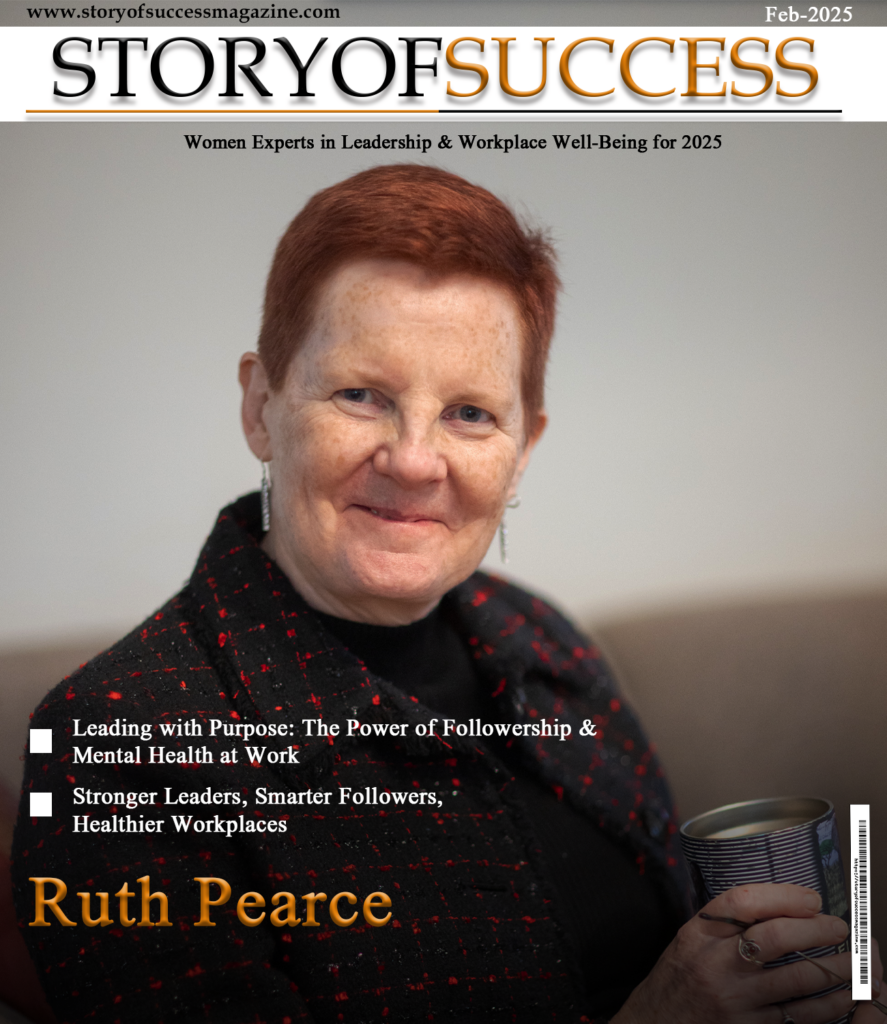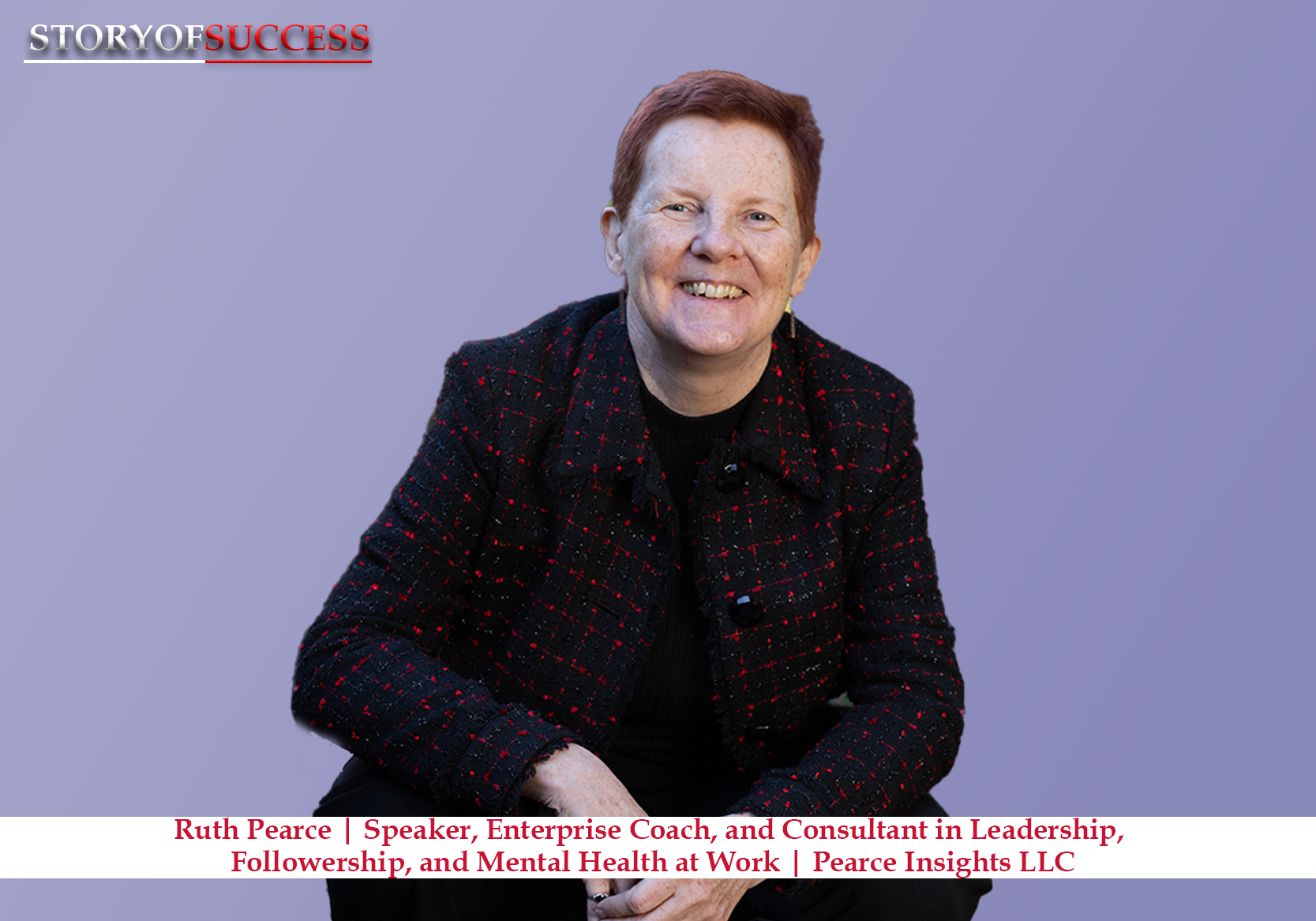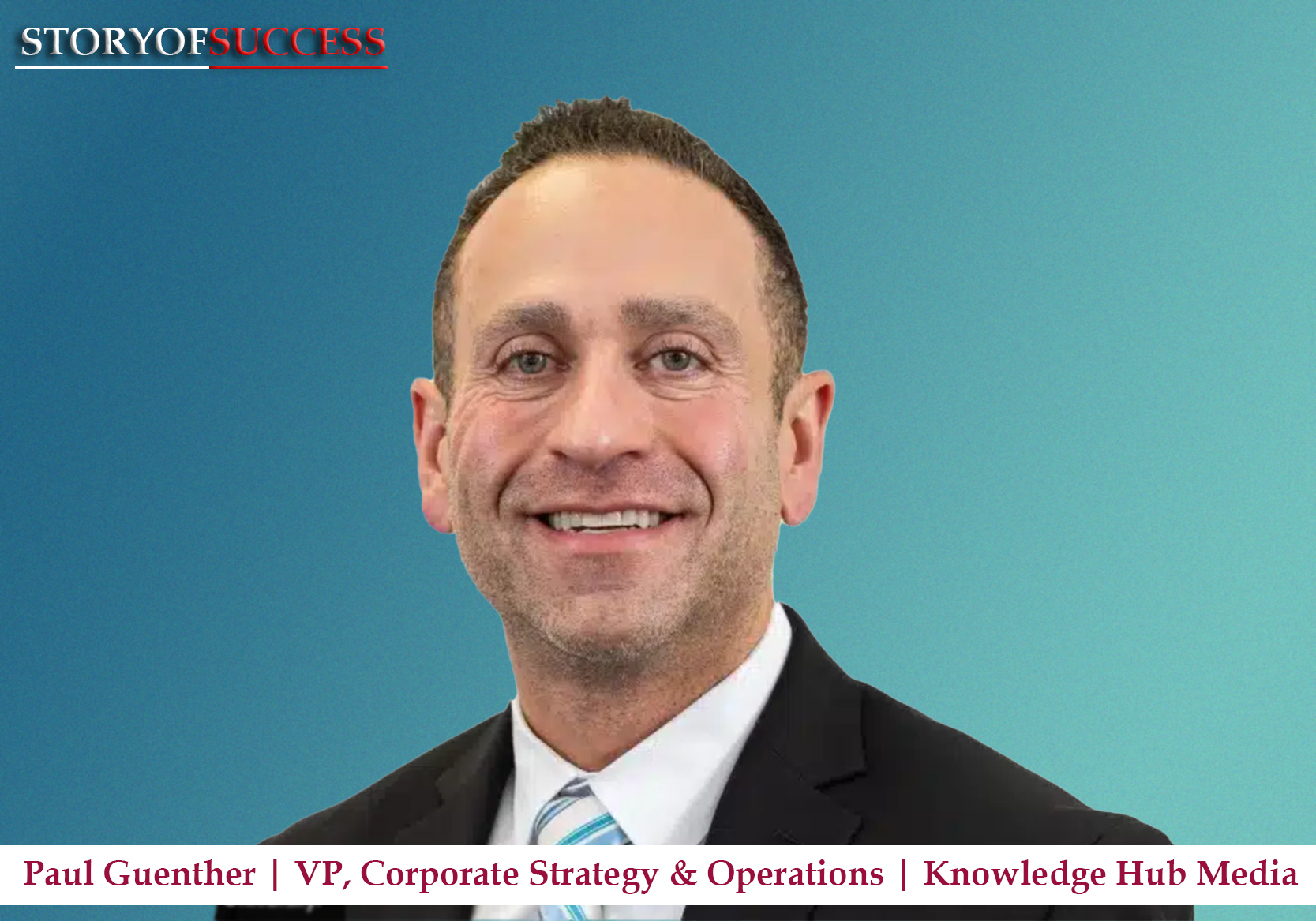
Women Experts in Leadership & Workplace Well-Being for 2025

A Leader’s Journey to Mental Wellness Advocacy
In the fast-paced world of work, technical expertise often takes center stage. But as Ruth Pearce discovered, true leadership isn’t just about skills—it’s about connection, inspiration, and support. With a background in law, project management, and psychology, Ruth witnessed firsthand that the most effective leaders create an environment of psychological safety, where teams thrive both professionally and personally.
Her own experience with burnout and workplace overwhelm fueled a deep passion for mental health advocacy. Seeing how work can impact well-being, she dedicated herself to fostering healthier, more supportive workplaces. Today, as a leadership coach and mental health advocate, Ruth helps organizations redefine success—where well-being and productivity go hand in hand.
Because when leaders prioritize mental health, everyone wins.
The Power of Presence: Balancing Speaking, Coaching, and Consulting
For Ruth Pearce, leadership and mental health advocacy extend beyond a single role. As a speaker, coach, and consultant, she weaves together different approaches to create lasting change. Speaking engagements amplify awareness, reaching broad audiences and sparking new conversations. Coaching transforms individuals in real time, helping them unlock their potential. Consulting embeds sustainable leadership practices within organizations.
Each role strengthens the other, creating a cycle of impact. But it’s coaching that brings the most fulfillment—where breakthroughs happen, confidence builds, and leaders emerge stronger than ever. By balancing structure with flexibility, Ruth ensures that every interaction contributes to a greater mission: shaping workplaces where people thrive.
Lessons from Leaders: The Good, the Bad, and the Transformative
Leadership lessons come in many forms—some inspire, while others serve as cautionary tales. For Ruth Pearce, both great and ghastly leaders have shaped her approach. Negative role models remind us who we never want to become, while true leadership often emerges quietly, without fanfare.
The most influential leaders in Ruth’s journey weren’t the loudest in the room; they were the ones who led with consistency, principles, and a deep respect for their people. They proved that leadership isn’t about power—it’s about presence. By valuing people over process, they created environments where trust, integrity, and growth flourished.
In leadership, it’s not about standing in the spotlight—it’s about lifting others into their own.
The Courage to Lead: Balancing Strength and Vulnerability
In today’s workplace, leadership is more than strategy and decision-making—it’s about self-awareness, adaptability, and emotional intelligence. The most effective leaders create psychological safety, fostering trust and open dialogue within their teams.
True leadership requires courage—not just to make tough decisions, but to lead with authenticity and resilience. It’s knowing when to stand firm and when to be vulnerable, when to take the reins and when to empower others.
By embracing both strength and humility, leaders inspire confidence, innovation, and collaboration. In the end, great leadership isn’t about having all the answers—it’s about creating an environment where others can thrive.
The Power of Followership: The Unsung Hero of Success
Great leadership doesn’t stand alone—it thrives on the strength of engaged, competent followers. Followership is more than just taking direction; it’s about actively supporting, challenging, and contributing to a leader’s vision while maintaining autonomy and critical thinking.
The best teams aren’t built on blind obedience but on a dynamic exchange of ideas, trust, and accountability. When followers bring their insights and initiative to the table, they elevate both the leader and the organization.
True success lies in the balance—where leaders empower, and followers engage. After all, leadership is only as strong as those who choose to follow.
The Art of Leading and Following: A Balanced Approach to Success
Great leaders don’t just lead—they know when to follow. The most effective workplaces are built on trust, open communication, and continuous learning, where leadership and followership exist in harmony.
By encouraging team members to take initiative and develop leadership skills, organizations create adaptable, empowered teams. A leader who recognizes when to step back and let others lead demonstrates true wisdom. Leadership isn’t about titles—it’s about knowing what the moment requires and who is best suited to guide the way.
When leaders and followers support each other, organizations don’t just function—they thrive.
Mental Health: The Key to Thriving Workplaces
A healthy workplace isn’t just good for employees—it’s essential for business success. Organizations that prioritize mental well-being see higher productivity, lower turnover, and stronger engagement. When employees feel supported, their decision-making improves, collaboration strengthens, and innovation flourishes.
What’s good for individuals is good for the organization. When stress and burnout take over, focus fades, creativity suffers, and performance declines. By fostering a culture that values mental health, businesses unlock the full potential of their teams.
A thriving workplace starts with a simple truth: when people feel well, they do well.
Breaking the Silence: Building a Workplace That Prioritizes Mental Health
Burnout, lack of belonging, and psychological safety gaps are some of the biggest mental health challenges in today’s workplace. But organizations that take proactive steps—through wellness initiatives, work-life balance policies, and open conversations—create environments where employees can truly thrive.
Mental health is not one-size-fits-all. While company-wide policies set the foundation, individual needs vary. The key is adaptability—offering tailored support that meets employees where they are. Coaching and mentoring play a crucial role in helping individuals navigate their unique paths to well-being and success.
The impact of prioritizing mental health is undeniable. Organizations that invest in coaching and support see significant returns, with research showing ROI as high as 600%. Leaders who recognize that mental well-being drives productivity, engagement, and retention are shaping the future of work—one where success and health go hand in hand.
Coaching for Impact: Transforming Leaders and Organizations
Effective coaching and consulting start with understanding—assessing where an organization or leader stands, identifying key challenges, and setting measurable goals. Through stakeholder interviews, assessments, and one-on-one discussions, the foundation for meaningful change is built.
Tailoring strategies to each industry and team dynamic is crucial. A legal team may require a different approach than a creative agency, but universal principles—psychological safety, strength-based leadership, and resilience—remain at the core.
One of the biggest misconceptions? That leadership is something you’re born with rather than a skill to develop. Another? That discussing mental health is a weakness rather than a strategic advantage. The truth is, great leaders evolve, and workplaces that embrace mental well-being create environments where both people and performance thrive.
The Leadership Shift: From Control to Trust
Many leaders start with the belief that they must have all the answers, make every decision, and treat all team members the same. But true leadership isn’t about control—it’s about creating an environment where success can flourish.
One of the greatest transformations I witness in my coaching is when leaders learn to delegate effectively, trust their teams, and embrace different ways of working. Letting go isn’t a sign of weakness; it’s the key to empowerment. A leader’s job isn’t to do everything—it’s to build a team that thrives.
Success isn’t just about metrics like engagement and retention; it’s about fostering a culture where people feel heard, respected, and valued. The most rewarding part of my work is seeing individuals step into their potential, creating a ripple effect of growth and success throughout their teams and organizations. Leadership is a journey of learning, and every day brings new insights—not just for my clients, but for me as well.
The Future of Leadership: A Shift Toward Humanity and Well-Being
The workplace is evolving, and leadership must evolve with it. Emerging trends show a move toward human-centered workplaces, where flexibility, fairness, and well-being take precedence over rigid structures and outdated rules. One-size-fits-all policies are being replaced with adaptable approaches that recognize individual needs while maintaining clear performance standards.
Mental health is no longer just a personal issue—it’s a workplace priority. Organizations must move beyond crisis response and create environments that support well-being from the start. Work shouldn’t be a place where people sacrifice their health to succeed; it should be a place where they thrive.
For aspiring leaders and coaches, the key is continuous learning, empathy, and the courage to challenge the status quo. Leadership isn’t about having all the answers—it’s about staying curious, standing firm in your values, and empowering others to grow. My philosophy is simple: When we lift others, we all rise.

Recent Post


Top 5 Women Redefining Leadership in 2025

The Top 5 Professors to Watch in 2025

Top 5 Women CEOs Redefining Leadership in 2025

Women Experts in Leadership & Workplace Well-Being for 2025

